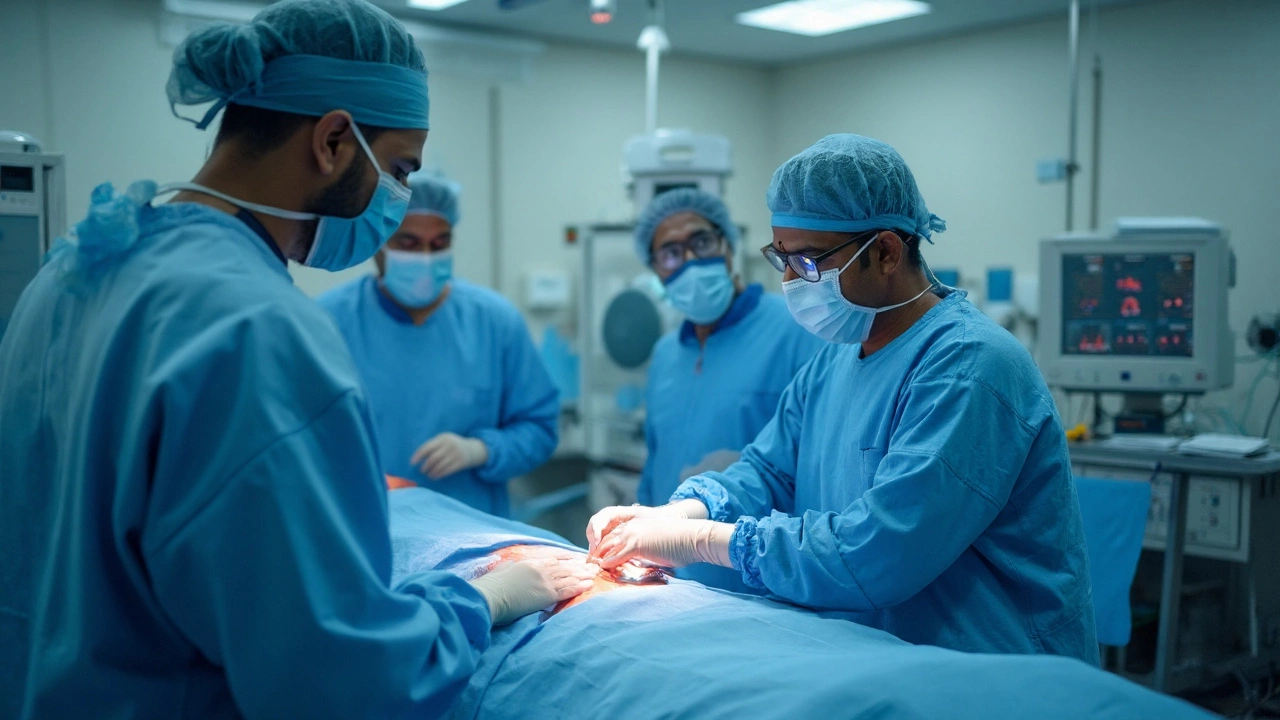Cardiac Surgery Time: How Long It Takes and What Happens Next
Thinking about heart surgery can feel overwhelming, especially when you don’t know how many hours you’ll be in the operating room or how long you’ll stay in the hospital. The good news is that most cardiac procedures follow a predictable timeline, and knowing the steps helps you plan and stay calm.
How Long Does Cardiac Surgery Usually Take?
Open‑heart surgeries such as coronary artery bypass graft (CABG) or valve replacement typically last 3 to 6 hours. The exact time depends on the number of vessels being treated, the complexity of the valve work, and whether additional procedures (like a maze for atrial fibrillation) are added. Minimally invasive techniques, which use smaller incisions and robotics, can cut the operating time down to 2‑4 hours.
Before the surgeon starts, you’ll spend about 30‑60 minutes in the prep area for anesthesia and monitoring. After the cut is closed, the team will keep you on a ventilator for 2‑6 hours while they watch your heart’s rhythm and blood pressure. Once you’re stable, you’re moved to the intensive care unit (ICU).
What to Expect After the Operation
In the ICU, the first 24‑48 hours are the most closely watched. You’ll have tubes for breathing, drainage, and a central line for medications. Nurses will check your heart rhythm, blood pressure, and wound site several times an hour. Most patients stay in the ICU for 1‑2 days before moving to a regular cardiac floor.
Hospital stay after cardiac surgery usually totals 5‑7 days. The first few days focus on pain control, getting you up and moving, and teaching you how to breathe deeply to avoid lung complications. Physical therapists will help you sit up, swing your legs, and walk short distances as early as the second day.
Recovery at home takes another 4‑6 weeks for most people. During this phase, you’ll need to keep your incision clean, take prescribed blood thinners, and follow a heart‑healthy diet low in saturated fat and salt. Gentle activities like short walks are encouraged; avoid heavy lifting or strenuous exercise until your doctor clears you.
Age plays a role in both surgery time and recovery. Older patients may have longer operating times because of frailty or additional health issues, and they often need a slightly longer hospital stay. However, modern techniques and careful pre‑op assessments have made heart surgery safe for many seniors.
Survival rates for open‑heart procedures are high—around 95 % for low‑risk patients and 85‑90 % for higher‑risk groups. Factors that improve odds include quitting smoking before surgery, controlling diabetes, and staying active during the rehab period.
Here are a few practical tips to smooth the timeline:
- Ask your surgeon for an estimated operation length and the reasons it might change.
- Prepare a list of medications and allergies to share with the anesthesia team.
- Arrange a family member or friend to stay with you for the first 24‑48 hours at home.
- Pack comfortable clothing, a pillow, and any mobility aids you’ll need after discharge.
- Follow the post‑op diet plan strictly; good nutrition speeds healing.
Knowing the typical cardiac surgery time and recovery milestones removes a lot of the guesswork. Keep these points handy, ask your healthcare team any questions, and focus on one step at a time. Your heart will thank you for the care you give it before, during, and after the operation.





